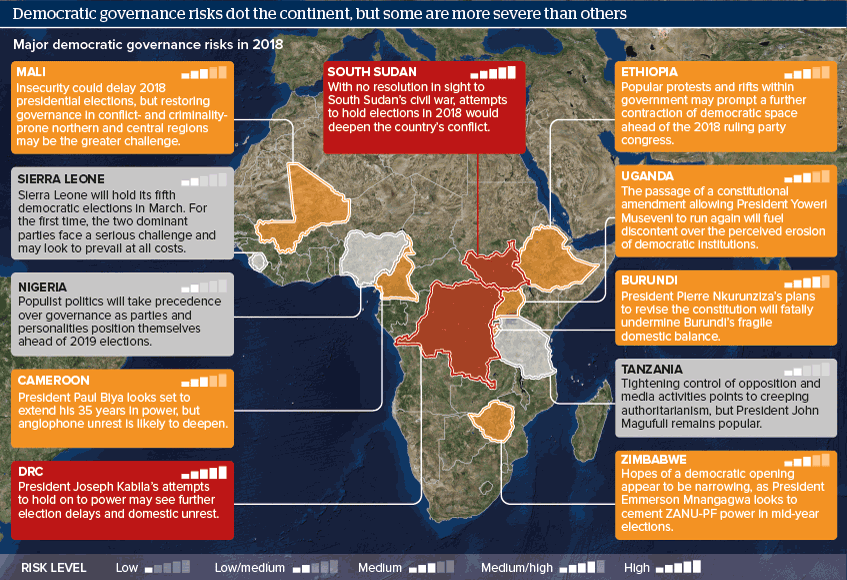Risks to African democratic governance loom in 2018
Several broad trends and potential flashpoints in 2018 could provoke democratic backsliding and associated unrest
Source: Oxford Analytica
Outlook
After a year of dramatic elections, disputed transitions of power and constitutional crises in 2017, new risks lie ahead for democratic governance in Africa in 2018.
Scheduled elections in both the Democratic Republic of the Congo and South Sudan have the potential to exacerbate those countries’ conflicts whether they go ahead or not; both might be delayed.
Despite the criticism with which similar efforts have previously been greeted, Burundi will look to join Uganda in passing a controversial constitutional amendment to extend its president’s stay in office.
Meanwhile, across the continent, the need to secure economic transformation is increasingly becoming part of the narrative used to justify restrictions on political freedoms or government intervention in key economic sectors.
Impacts
- Contractions in the democratic space may radicalise opposition actors who see prospects for peaceful political engagement narrowing.
- Populist policies might appease some domestic constituencies but could deter investors.
- African leaders will have greater influence over their neighbours than outside actors, but will measure their interventions.
- Nominally independent institutions such as electoral commissions will increasingly become a target of political interference.
See also
- Election rigging may erode Africa’s democratic gains - May 11, 2018
- New Sierra Leone president faces raised expectations - Apr 11, 2018
- African anti-corruption will require state-led reform - Feb 1, 2018
- African election monitoring will need domestic focus - Apr 18, 2017
- More graphic analysis
